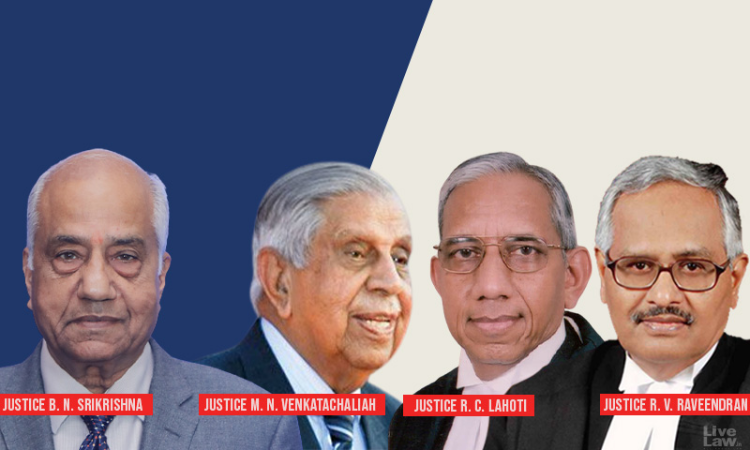Age Of Retirement Must Increase For All, But Should Be Uniform For Judges Of Supreme Court And High Court Judges: Suggest Former SC Judges
Mehal Jain
27 Jun 2021 11:43 AM IST

Next Story
27 Jun 2021 11:43 AM IST
Saturday witnessed an interesting panel discussion featuring 4 former Supreme Court judges- Justices B. N. Srikrishna, M. N. Venkatachaliah, R. C. Lahoti and R. V. Raveendran- circling around two 'anomalies in law and justice'- Delays in disposal of cases, and Technology and the law.The discussion transpired that the launch of the book "Anomalies in Law & Justice: Writings Related to...
